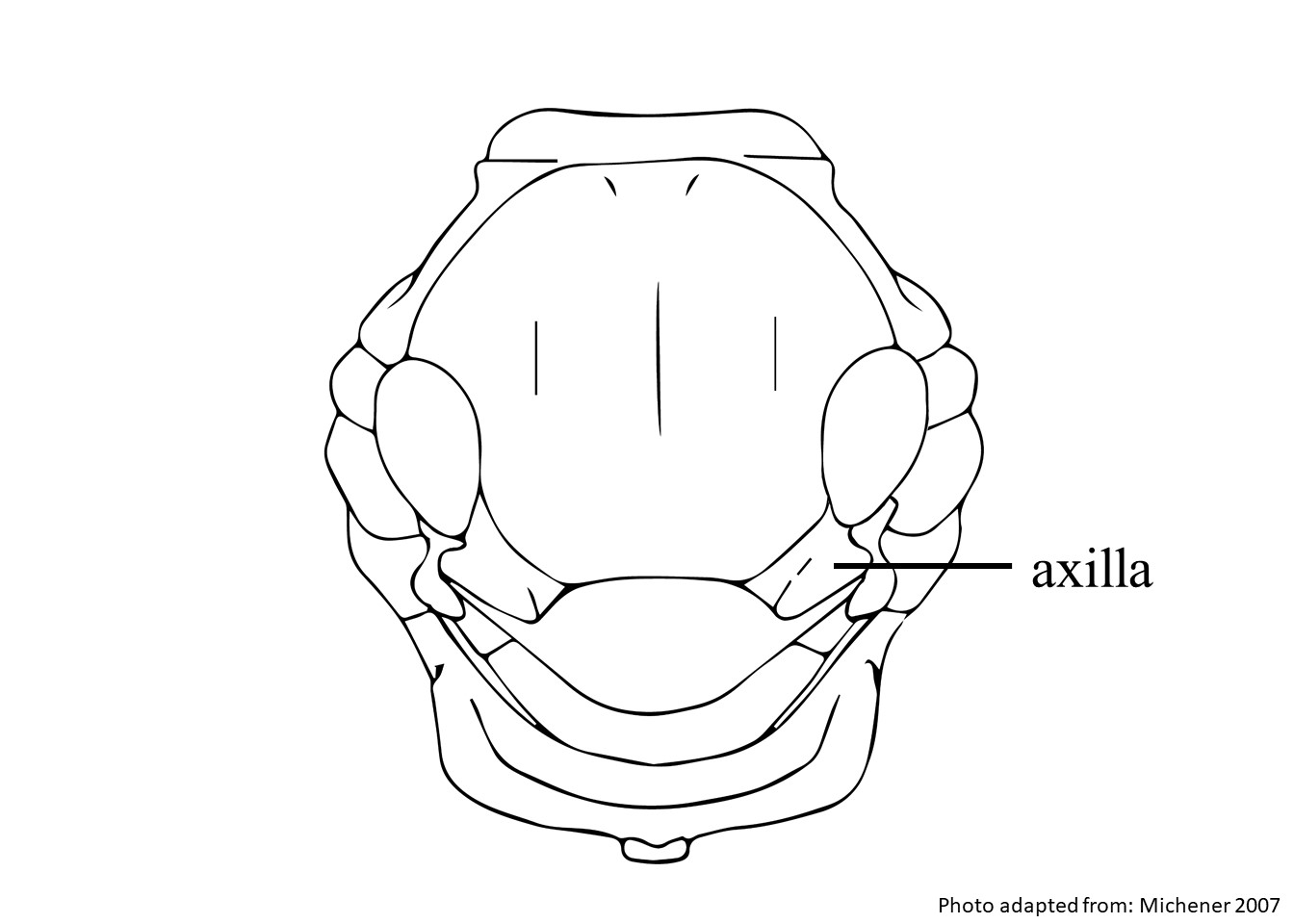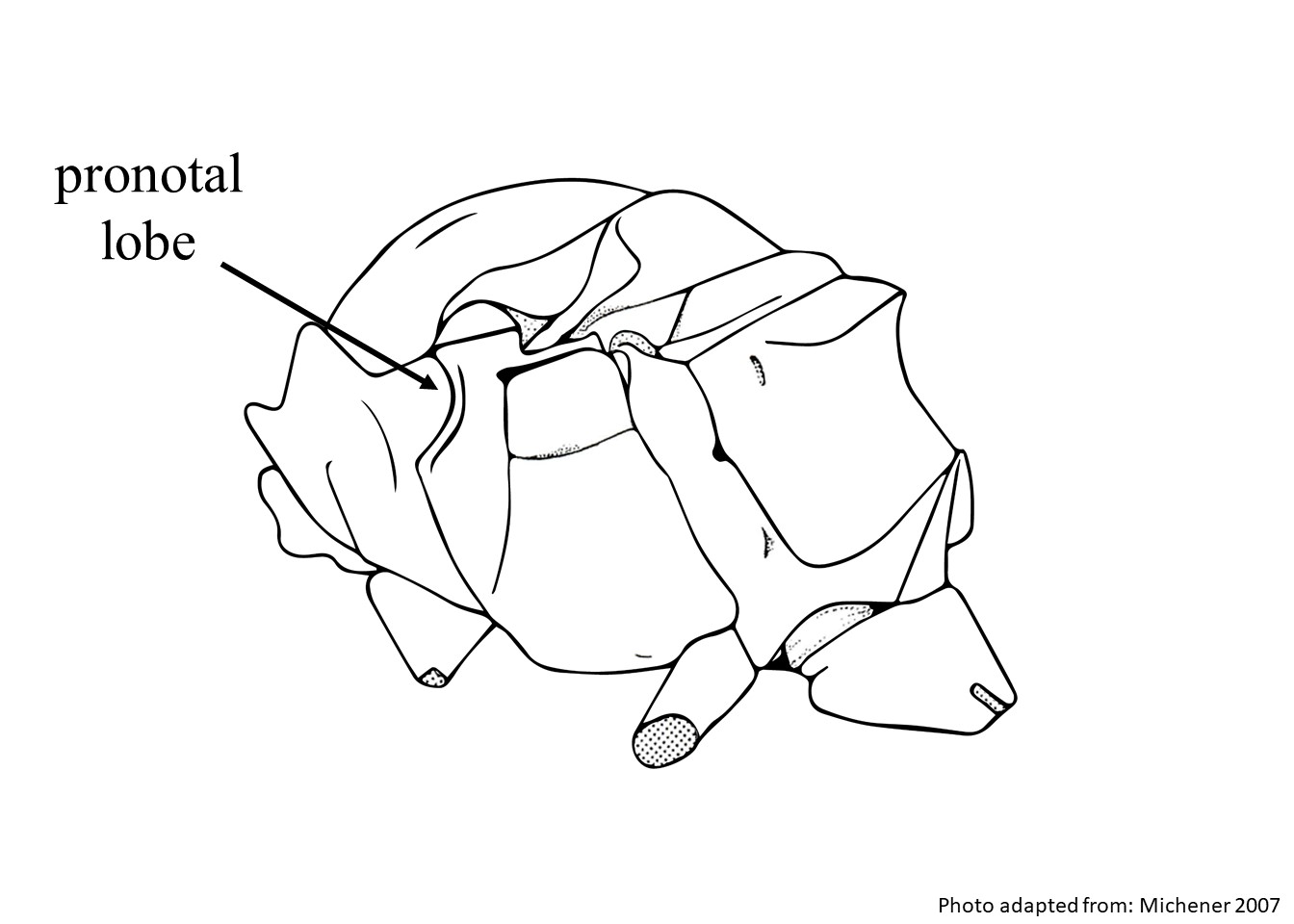Taxonomy
Family: Megachilidae
Subfamily: Megachilinae
Tribe: Anthidiini
Genus: Larinostelis Michener and Griswold, 1994
Subgenera: none
Common name: none
Overview
Larinostelis are robust, black bees with extensive yellow markings that have a body length of 6.5 mm (Michener 2007Michener 2007:
Michener, C.D. 2007. The Bees of the World (2nd ed.). Johns Hopkins University Press, Baltimore and London, 953 pp.). This genus is known from a single female specimen.
Diversity
Larinostelis contains 1 species, L. scapulata (Michener 2007Michener 2007:
Michener, C.D. 2007. The Bees of the World (2nd ed.). Johns Hopkins University Press, Baltimore and London, 953 pp.); none are known to occur in the U.S. or Canada (Michener 2007Michener 2007:
Michener, C.D. 2007. The Bees of the World (2nd ed.). Johns Hopkins University Press, Baltimore and London, 953 pp.).
Diagnostic characteristics
(modified from Michener 2007Michener 2007:
Michener, C.D. 2007. The Bees of the World (2nd ed.). Johns Hopkins University Press, Baltimore and London, 953 pp.)
- Arolia absent.
- Axilla axilla:
the triangular or rounded point on the thorax where thoracic muscles meet the forewing of an insect
 carinate and extended laterally.
carinate and extended laterally.
- Juxtantennal carinae present.
- Middle tibiatibia:
the segment of the leg, between the femur and the tarsus
 with two apicalapical:
with two apicalapical:
near or at the apex or end of any structure
spines.
- Omaulus omaulus:
angle between anterior and lateral surfaces of mesepisternum
 carinatecarinate:
carinatecarinate:
having keels or carinae
.
- Pronotal lobe pronotal lobe:
a part of the pronotum located dorsally on the posterior margin of the pronotum and overlaps the anterior thoracic spiracle
 carinatecarinate:
carinatecarinate:
having keels or carinae
.
- Propodeum propodeum:
the last segment of the thorax
 with foveafovea:
with foveafovea:
a depressed region of cuticle; in bees this depressed area is usually only very slightly hollow and usually on the face.
defined by a carinacarina:
a clearly defined ridge or keel, not necessarily high or acute; usually appears on bees as simply a raised line
behind spiraclespiracle:
a breathing pore, usually occurring on the third thorasic segment
present.
- Propodeum propodeum:
the last segment of the thorax
 with strong row of pits basally and a strong posterior carinacarina:
with strong row of pits basally and a strong posterior carinacarina:
a clearly defined ridge or keel, not necessarily high or acute; usually appears on bees as simply a raised line
.
- Female scopascopa:
modified hairs for carrying pollen; often branched and dense hairs on the hind-leg, or on the ventral surface of the abdomen in Megachilidae
absent.
May be confused with
Larinostelis can share a lot of characters with species in the genus Epanthidium. Larinostelis can be distinguished by the lack of scopal hairs in the female.
Known invasives
There are no known invasives.
Host associations
Floral associations are unknown.
Nesting behavior
Nesting behavior is unknown.
Distribution
Larinostelis scapulata occurs in Kenya (Michener 2007Michener 2007:
Michener, C.D. 2007. The Bees of the World (2nd ed.). Johns Hopkins University Press, Baltimore and London, 953 pp.).

Distribution map generated by Discover Life -- click on map for details, credits, and terms of use.
References
Michener, C.D. 2007. The Bees of the World. 2nd ed. Johns Hopkins University Press, Baltimore and London, 953 pp.
 carinatecarinate:
carinatecarinate: